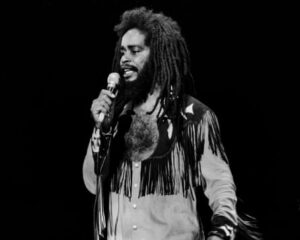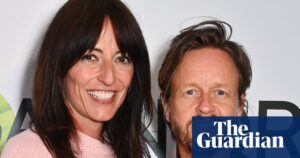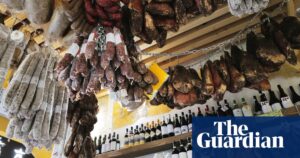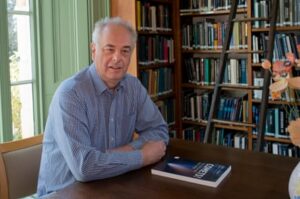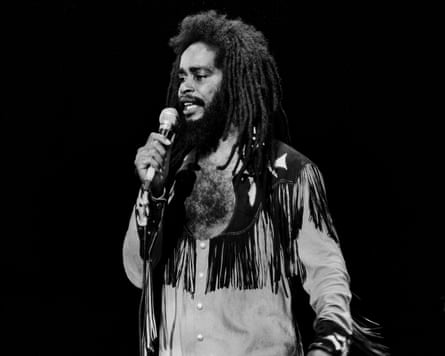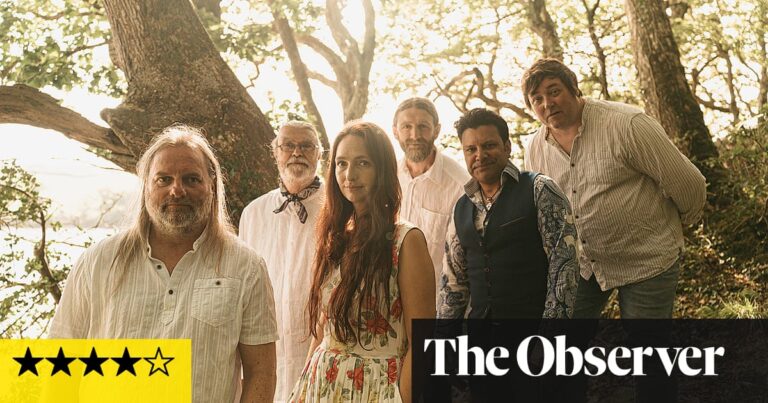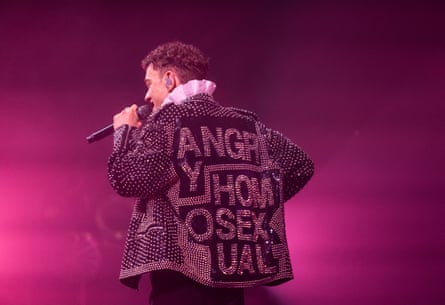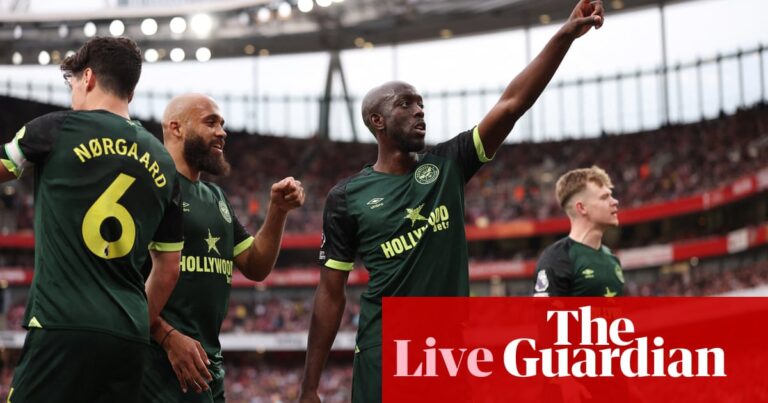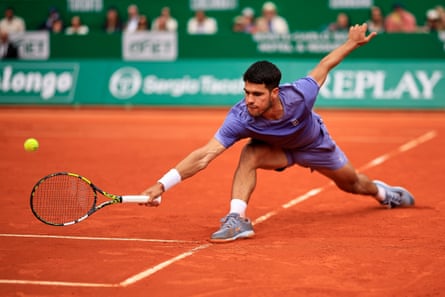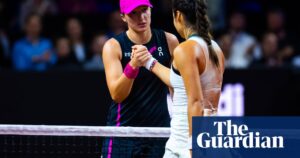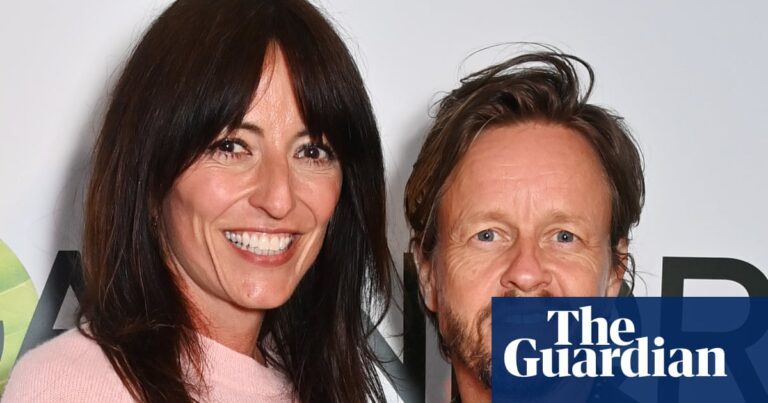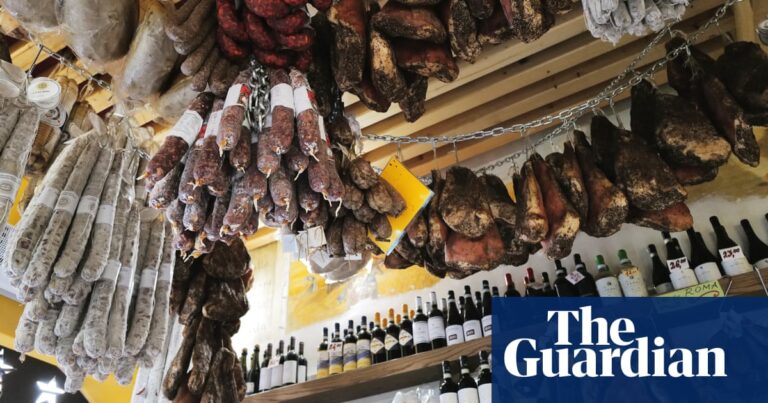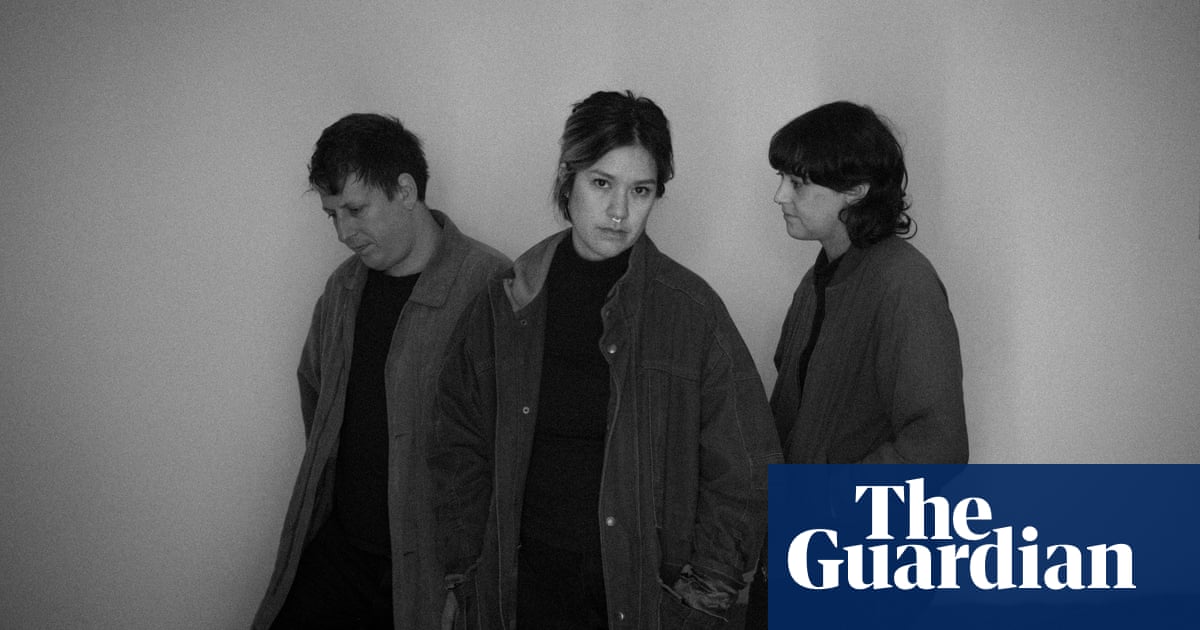
Since their inception in 2012, Big Brave have amplified the torrential sound of clawing oneself into being. The Montreal trio found their early audiences in metal and post-rock – recording their sophomore album a decade ago with Efrim Menuck of agitprop heroes Godspeed You! Black Emperor and signing to Southern Lord, the label of drone metal gods Sunn O))) – but their scorched, squalling experimental rock never fitted neatly into either category. “We started with concepts: basic instrumentation, using the tools that we had, which were not much at the time,” says guitarist and singer Robin Wattie. Big Brave was her first band, named to evoke pure conviction. “There’s always this element of ‘What is it that I’m trying to carve out or find?’”
That inquisitive search through heavy music, she says, “parallels my experience in the industry: quite literally having to elbow my way into environments and make space for myself at venues and bars just to be heard and treated with respect – very basic, minimal things.”
On a Wednesday morning, Big Brave, which also include guitarist Mathieu Ball and drummer Tasy Hudson, are on a video call to discuss their formidable seventh album, A Chaos of Flowers. The band’s third release for Chicago avant-rock institution Thrill Jockey is their subtlest and their most daring work, dialling back some volume to let their ecstatic guitar feedback stretch and breathe. They brought in three of America’s heaviest-hitting improvisers to texture its palette – the free-jazz saxophonist Patrick Shirioshi and instrumental guitarists Marisa Anderson and Tashi Dorji – while Wattie drew lyrics from 19th and early-20th century poems by women that were freely accessible in the public domain. “I was looking for female narrators,” Wattie said. “I had already known Renée Vivien, Emily Dickinson, but I wanted to know more.” Wattie found that most available material was “quite literally a bunch of dead white guys. I couldn’t relate.”
Digging deeper into her pursuit of uncopyrighted verse, Wattie did find kindred spirits who are “not in the collective consciousness” but better voiced unconventional beauty and discontent, such as Japanese feminist Akiko Yosano and Harlem Renaissance writer Esther Popel. “There’s this common, almost transcendental experience across generations and cultures,” Wattie said. “It was amazing to read. And I was also deeply heartbroken.”
A Chaos of Flowers opens with an interpretation of the Dickinson poem I felt a Funeral, in My Brain – “there’s no grey area,” Wattie says of its morbid theme – and closes with Moonset, written by Emily Pauline Johnson, who was of Mohawk and English ancestry and became part of a 19th-century travelling company. “She was mixed race, and lived with that in-betweenness that not everybody experiences,” says Wattie, whose mother is white and father (who she has never met) is from Hong Kong. “The whole poem is this eerie, gorgeous landscape.”
Hudson considers the new album “an exhale” to last year’s foreboding Nature Morte, which scaled the group’s noise rock to a devastating, incendiary pinnacle. Their process was also influenced by a 2021 collaboration with metal experimentalists the Body, which set a foundation for a more spontaneous approach. “It broke any kind of pattern,” says Hudson. That freedom is evidenced stirringly on the incandescent Chanson Pour Mon Ombre, featuring her firework drumming and Dorji’s breathtakingly corrosive acoustic guitar, though tidal feedback is still the oxygen of Big Brave’s art.
“It’s visceral,” says Wattie. “When you see a very loud, heavy show, if the sound is done right, you can actually feel the air move, you feel vibrations.”
Wattie and Ball met as roommates while art students at Concordia University. The band began as a quiet living-room project (slowcore giants Low remain a mutual favourite), playing music to hang out. At the time, Wattie’s interests skewed towards folk and bluegrass a la Gillian Welch; Ball played in “loud bands” but found himself oriented towards the avant garde minimalism of John Cage and Tony Conrad. The resonant tones and raw, reaching grace of those touchstones cohere into a bracing friction in every Big Brave album, notably in Wattie’s corporeal singing, which occupies the gorgeously tattered edge of a melody and a scream. 2019’s A Gaze Among Them was a seething turning point – the start of an ongoing relationship with Rhode Island-based producer Seth Manchester, known for his vanguard work with the Body and Lingua Ignota. (Hudson joined the band later that year.)
Big Brave put the severity of their music to use. Each album has grown more explicitly political: Wattie considers Nature Morte and A Chaos of Flowers to be “sibling albums”, mapping the interconnectedness of societal wreckage and the doom it inflicts. “Nature Morte was like, ‘Listen, this is the reality of the subjugation of femininity in all its forms, from nature to humans,’” she says. “And A Chaos of Flowers is the effect that that has on a whole population of people, including men. Something has to fundamentally change because I think we’re sick as a species. We’re fundamentally super cruel. And I think that is a byproduct of – excuse me – capitalism and patriarchy,” she adds, followed by a heartily self-aware laugh.
At the same time, she says, the poems she discovered showed that our shared despondency is not a uniquely modern affliction. “A lot has changed, but when it comes down to what we experience individually, alone, it’s clear nothing has – especially with things like mental collapse and grief and depression and specific types of love and beauty that these people wrote about. I was like: oh, I’m not alone. It was terribly sad, but it was also a relief.”
Source: theguardian.com

